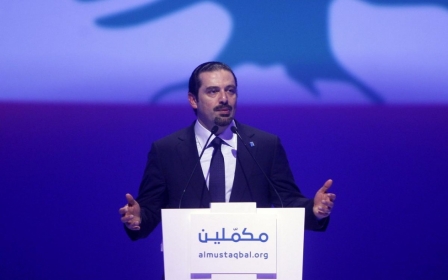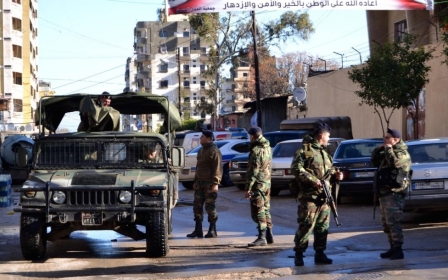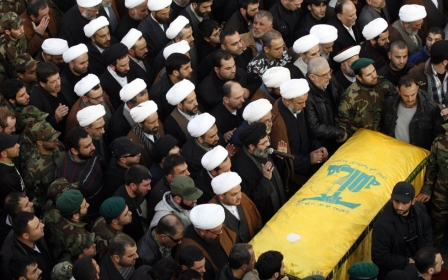Much to dialogue about nothing in Lebanon

BEIRUT - As Lebanon marked the 10th anniversary of the assassination of former PM Minister Rafik Hariri over the weekend, and the war in Syria continued to rage next door, many in Lebanon are rightly voicing concerns that the country may be in store for more turbulent times ahead.
The challenges indeed look grave. The Lebanese parliament has failed 18 times, thus far, to elect a new president after the office fell vacant on 25 May 2014. There have been recurring bursts of violence up in the north and also in the south. This has also been coupled with the emerging problem of rising Islamic militancy, and a catastrophic refugee problem. Taking all of this into account Lebanon seems to be standing at the brink of collapse, or is it?
In the midst of all this somewhat bleak reality, some leading political parties, each for their own reasons, have realised that perhaps the only way to avoid further escalation was to resort to dialogue.
On the one hand, Hezbollah and the Future Movement have started a series of meetings to alleviate the omnipresent Sunni-Shiite schism. Concurrently, Lebanon’s two leading Christian parties that stand at opposite ends of the political spectrum - the Lebanese Forces (LF) and the Free Patriotic Movement (FPM) - have decided that years of boycotting each other must end, all for the sake of electing the next president of the republic.
While naturally these two separate, yet intertwined endeavours at dialogue were downplayed by most, in essence these seemingly folkloric exercises tend to yield more benefit than harm.
The Lebanese most often tend to blame their precarious political system on regional and international dynamics. This so-called “war of others” renders the Lebanese actors useless to dictate internal political feats, unless regional circumstances allow it. Despite the partial validity of this claim, at least in times of crisis, what the talks suggest is that these local factions clearly have operational and moral command over their clients and thus can greatly alleviate any inter-sectarian tensions.
Initially, the Hezbollah-Future dialogue agenda included the election of a president and fighting terrorism. Top of the agenda though was the endemic issue of the Hezbollah-sponsored Resistance Brigade. These paramilitary non-Shiite military groups, on Hezballah’s payroll, are spread out across Lebanon and help the latter police and quell domestic disturbances.
Coincidently, the opponents or targets of this so-called brigade have largely been Future Movement loyalists, who view the Resistance Brigades as a constant reminder of Hezbollah’s ability to reenact the event of 7 May 2008 when Hezbollah militias moved into Western Beirut and clashed with militias loyal to the Future Movement following government steps to close down a Hezbollah TV station. The street battles that ensued left 11 dead and 30 wounded.
While the first five Hezbollah-Future dialogue sessions have failed so far to resolve any of the aforementioned issues, it has been nevertheless successful in achieving a number of seemingly petty, yet relatively immediate gains for the Lebanese public.
The only physical manifestation of these sessions, for the time being, has been the removal of all political slogans and party banners from Beirut, Sidon and Tripoli, a less than favorable Lebanese ritual that has tainted the public and private sphere for years and was largely welcomed in Beirut, if not Tripoli.
However, beyond this mere facelift of some city streets, this dialogue was able to underscore that despite the raging sectarian war across the border in Syria and the involvement of both Hezbollah and the Future movement in the war, the Sunnis and Shiites of Lebanon are doomed to coexist, at least for now.
On the other side of the political spectrum, the Lebanese Forces and the Free Patriotic Movement have taken a different mode of negotiations.
These arch rivals whose animosity goes back to 1988 have opted to discuss a 16-item agenda which promises to debate almost all the thorny issues. Everything is on the table - decentralisation, arming of the Lebanese Armed Forces and long prickly electoral law reform which would further weaken Christian influence in government and beyond.
However, what remains paramount on this list is that at the end of the day, either FPM leader Michel Aoun or LF leader Samir Geagea will ascend to the presidency.
The manner of dialogue, coupled by the somewhat marginal role both these factions play in the regional as well as local political reality, has rendered this dialogue impractical. While both the LF and FPM continue their conversation quietly by forming subcommittees and drafting working papers, the only visible ramifications of their dialogue has been the end of the offensive rhetoric and mudslinging that both these parties have used to daily exchange in the media, but perhaps this is a feat in itself.
While the vast majority of Lebanese continue to look at these two ongoing dialogue exercises with laxity and doubt, one should remember that before Lebanon concluded the Taif Accord that ended the civil war in 1989, there were four failed attempts which eventually paved the way for the final settlement.
Second, with the ever looming ghost of sectarian strife knocking at the door, all political parties gain from maintaining a lean and effective backdoor communication network which these dialogue sessions seem to keep fully operational. It means that if tensions do begin to spiral there could be a critical pressure valve to help calm the situation.
So while the regional settlement train has not yet been scheduled to pass by Lebanon, it is perhaps mutually beneficial that when that time comes, which it eventually must, every faction will be standing ready and would have reserved their place at the negotiating table, so as not to be left behind.
- Makram Rabah is a PhD candidate at Georgetown University’s history department. He is the author of 'A Campus at War: Student Politics at the American University of Beirut, 1967–1975' and a regular columnist for Now Lebanon.
The views expressed in this article belong to the author and do not necessarily reflect the editorial policy of Middle East Eye.
Photo: Rafik Hariri was assassinated in Central Beirut on 14 February 2004. The killing has never been solved and continues to plague Lebanese politics. (AFP)
New MEE newsletter: Jerusalem Dispatch
Sign up to get the latest insights and analysis on Israel-Palestine, alongside Turkey Unpacked and other MEE newsletters
Middle East Eye delivers independent and unrivalled coverage and analysis of the Middle East, North Africa and beyond. To learn more about republishing this content and the associated fees, please fill out this form. More about MEE can be found here.





